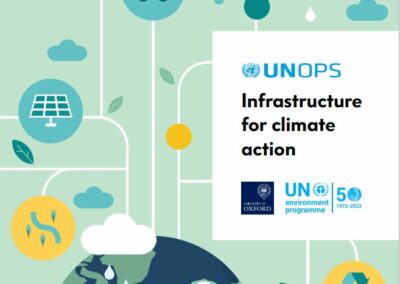The National Needs Assessment (NNA) was an Institution of Civil Engineers initiative to examine the UK’s likely infrastructure needs in the coming decades – set against uncertainties such as climate change, population growth, global energy prices and economic change. It also looked at the way infrastructure networks relate to, and depend on, one another and how this will impact on the performance of networks in the future.
We provided the primary evidence for the NNA through our modelling framework for analysing the relationships between and among infrastructure networks. Our scenarios set out the main demand drivers on infrastructure – population growth, climate change, technology, economic trends.
The National Needs Assessment sets out a vision for how infrastructure delivers economic growth, thriving communities and embraces technology to deliver a low carbon future. It is a blueprint for the National Infrastructure Commission’s (NIC) long term infrastructure assessment.
Main messages
Housing needs:
- A comprehensive review of public land available for housing
- Housing should be considered as part of the Nationally Significant Infrastructure Planning (NSIP) regime to enable house building in the right locations.
Energy needs:
- A plan for low carbon electricity generation capacity that ensures security of supply through to at least 2035. This should include a diverse mix of energy generation based on nuclear, renewables, gas and interconnectors
- The NIC should set out alternative strategies for energy security post 2035, including use of new technologies
- Government and Ofgem should take a more proactive role in enabling a smarter energy system to reduce the need for major new power projects
- A clear policy and consistent schemes for reduction of energy demand in households and businesses.
Transport needs:
- Identify priority routes for capacity improvements on road and rail networks, including completion of HS2 Phases 1 and 2, development of the business case for extending high-speed rail to Scotland, capacity increase in the South-West and a transport corridor from East to West
- Support the efficient use of road space, and rapid implementation of autonomous vehicles for both freight and passenger traffic
- Establish and implement new ways of funding primary road infrastructure, including consideration of a road pricing system..
- Increase investment in the commuter rail network and other public transport to ensure the economic development of urban centre is not constrained by overcrowding and congestion.


